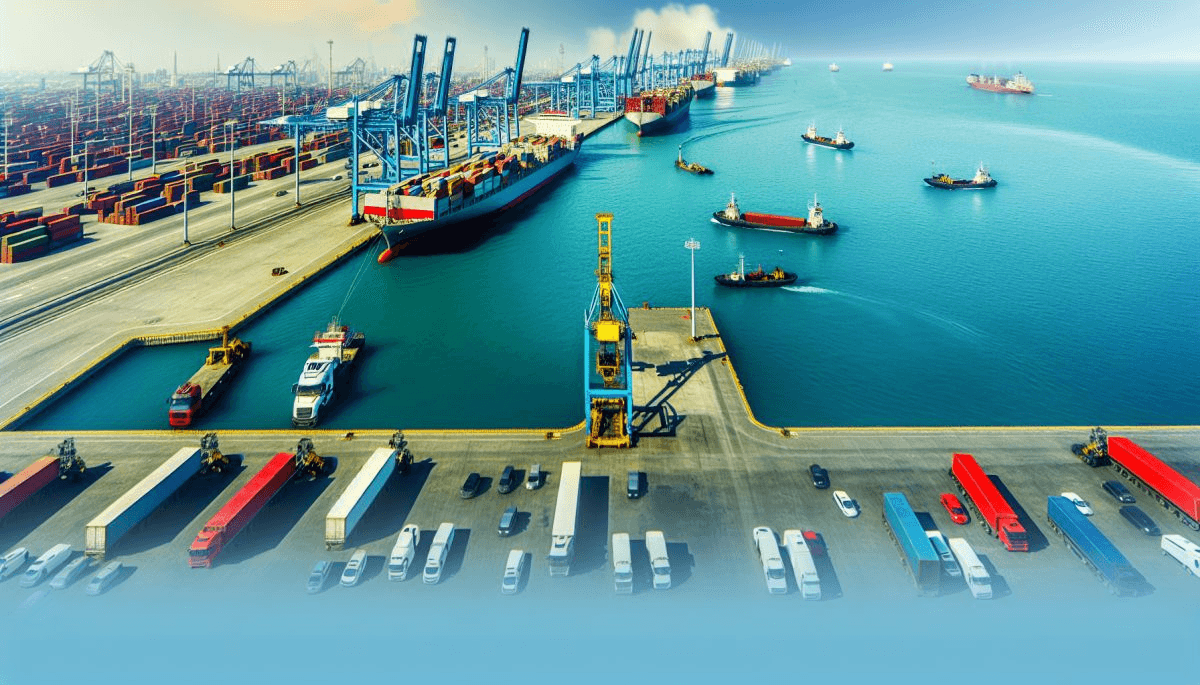Ro-Ro shipping, an acronym for Roll-on/Roll-off shipping, has emerged as a pivotal component in the global maritime industry, particularly in the burgeoning logistics sector of Georgia. As environmental consciousness becomes a defining factor in global commerce, the advancement in Ro-Ro shipping Georgia stands out, reflecting significant sustainability trends in the maritime trade.
The Role of Georgia's Ports in Maritime Sustainability
Georgia's strategic location, marked by the well-positioned Poti and Batumi ports, serves as a logistical bridge, effectively linking Europe with Central Asia. These ports are not just pivotal for project logistics Georgia but are also central in promoting eco-friendly practices within maritime operations.
Poti and Batumi: Gateways to Green Shipping
The Batumi port freight and container shipping Georgia operations have witnessed substantial advancements with eco-efficient Ro-Ro vessels. These ships, designed to minimize carbon footprints, are crucial in connecting European hubs like Bulgaria and Romania to Central Asian markets such as Azerbaijan, Turkmenistan, Uzbekistan, and Kazakhstan.
Sustainable Features of Modern Ro-Ro Vessels
Recent innovations in Ro-Ro vessels include the use of alternative fuels, such as LNG (Liquefied Natural Gas), which contribute substantially to reducing greenhouse gas emissions. The emphasis on using hybrid propulsion systems further enhances fuel efficiency and operational performance, setting a significant precedent for the Turkish shipping industry and related marine logistics Turkey operations.
Environmental Impact and the Future of Ro-Ro
Efforts to reduce the environmental impact of maritime shipping are well underway, with Georgia leading the charge in adopting these innovations. Modern Ro-Ro ships offer reduced noise pollution and improved fuel efficiency, ensuring that the heavy freight volumes traversing through Georgian corridors uphold eco-friendly mandates.
Strategic Importance of Logistical Corridors
The economic significance of Georgia's maritime routes cannot be overstated. Serving as conduits for international freight, these routes cater to the heavy flow of goods between Europe and Central Asia, reinforcing the sustainability and efficiency of maritime transportation systems.
A Look Ahead: The Future of Marine Logistics
As maritime trade continues to evolve, the focus on sustainable practices will only intensify. Georgia's commitment to enhancing its logistical frameworks with innovative Ro-Ro solutions places it at the forefront of eco-innovation, benefiting not just the local Turkey shipping company stakeholders but also the broader international market.
For more information on cutting-edge maritime logistics and sustainable practices, visit here or here.

